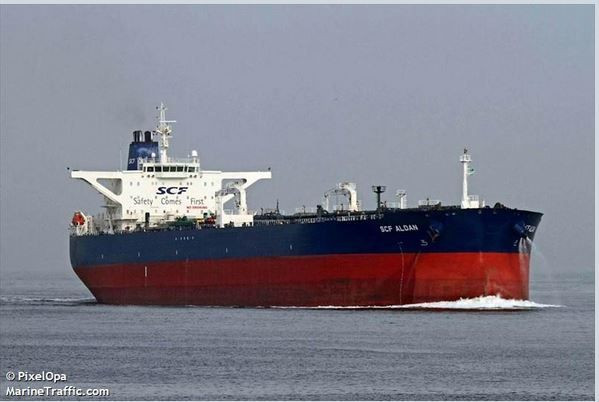How A Dispute Over Tanker United Leadership Explains The Role Of Oil In The Fight Against ISIS

A ship filled with Kurdish oil that departed from Turkey recently, and stopped abruptly in the waters just south of Cyprus, may help explain a key aspect of the conflict that's pitting the Islamic State group against a U.S.-led coalition and pretty much every state in the region: access to oil and to the revenues it brings.
The oil tanker could help steer events in Iraq in a completely new direction, pitting Iraqi military forces against each other and giving ISIS the upper hand militarily.
The United Leadership left the port of Ceyhan in Turkey on Monday, filled with oil pumped through the pipeline that links Iraqi Kurdistan to Turkey. That pipeline is bringing oil extracted in Iraq's Kurdistan, which behaves these days like a de-facto state, for distribution on the world market. But the Baghdad government claims the sale of that oil by Kurdistan is illegal, because the Kurdish authorities did not receive consent from the central government beforehand. Baghdad politicians fear that if Iraqi Kurdistan harnesses its access to oil and delivers it to wealthy buyers, it will then have the resources to formally claim independence -- a move that would hurt Baghdad because it relies on that region's oil riches to finance itself.
The United Leadership had in fact already loaded Kurdish oil in the Ceyhan port, this summer, the first-ever vessel to do so. It sailed to Morocco, where it sat offshore as Baghdad put pressure on oil buyers to steer clear from it, and then turned back toward Ceyhan. Oil analysts said that it then transferred part of its oil onto another ship off the coast of Malta. Following the transfer, the Leadership headed back to Ceyhan, and loaded more Kurdish oil. That is the shipment that left the port Monday and is now sitting off the coast of Cyprus. Analysts said it's either waiting for crude oil prices to go back up, making the sale more profitable, or for a go-ahead from the Iraqi government.
The problem, though, is that the oil could be seized by authorities if it is unloaded off the tanker.
That's because the Iraqi government has filed a lawsuit in Texas against Iraqi Kurdistan's Ministry of Natural Resources over another tanker carrying Kurdish oil, worth about $100 million at current prices. That tanker, the United Kalavryta, also owned by Greece-based Maritime Management Services, is anchored off the shore of Texas.
According to court documents obtained by the International Business Times, Baghdad is claiming it owns the oil. In December 2013, Iraqi Kurdistan began pumping oil from the Ceyhan pipeline without the consent of the central government and began trucking it into Turkey to store. Recently, though, Kurdish and Turkish officials have agreed to allow the oil to flow to Ceyhan to be loaded onto tankers and sold.
It is unclear who may be buying the Kurdish oil. Investors have remained anonymous due to pressure from Baghdad.
Denise Natali, a fellow at the Institute for National Strategic Studies, said the Kurds are in a difficult position economically. They have not received their share of the budget from the central government and were planning on oil sales to fund government services. But with the price of crude declining in recent days, Kurdish oil is less valuable now. And with the infighting between Baghdad and the Kurdish leadership and the lawsuit filed in Texas, it has become somewhat of an untouchable commodity.
Yet, although the Kurdish oil remains offshore on tankers, it could prove to be a key part of how the political environment moves forward in Iraq in the coming weeks.
While the fight against ISIS goes on, with a coalition of more than 60 countries led by the U.S., Washington has already made clear that the conflict in Iraq would not end unless there was a stable government in place that included religious and ethnic minorities. And that's precisely the problem: As long as Baghdad and Kurdistan disagree on oil, the main cash generator for both of them, that goal may never be realized.
© Copyright IBTimes 2024. All rights reserved.




















